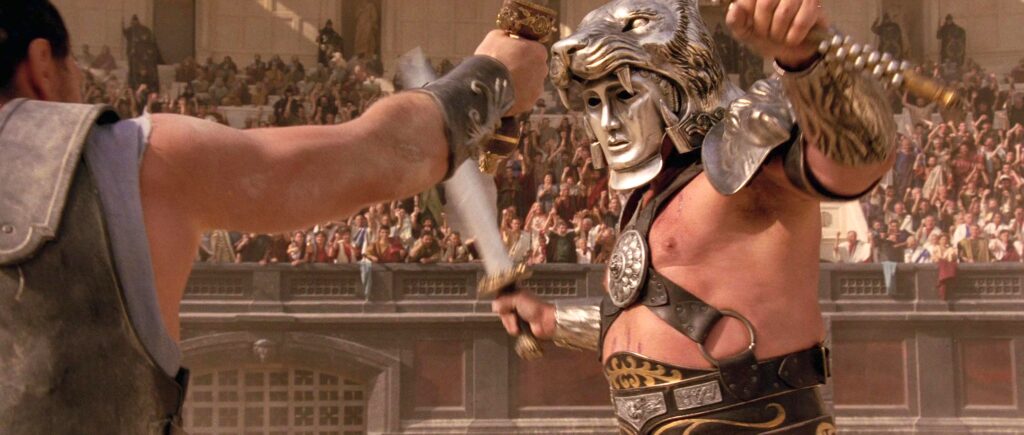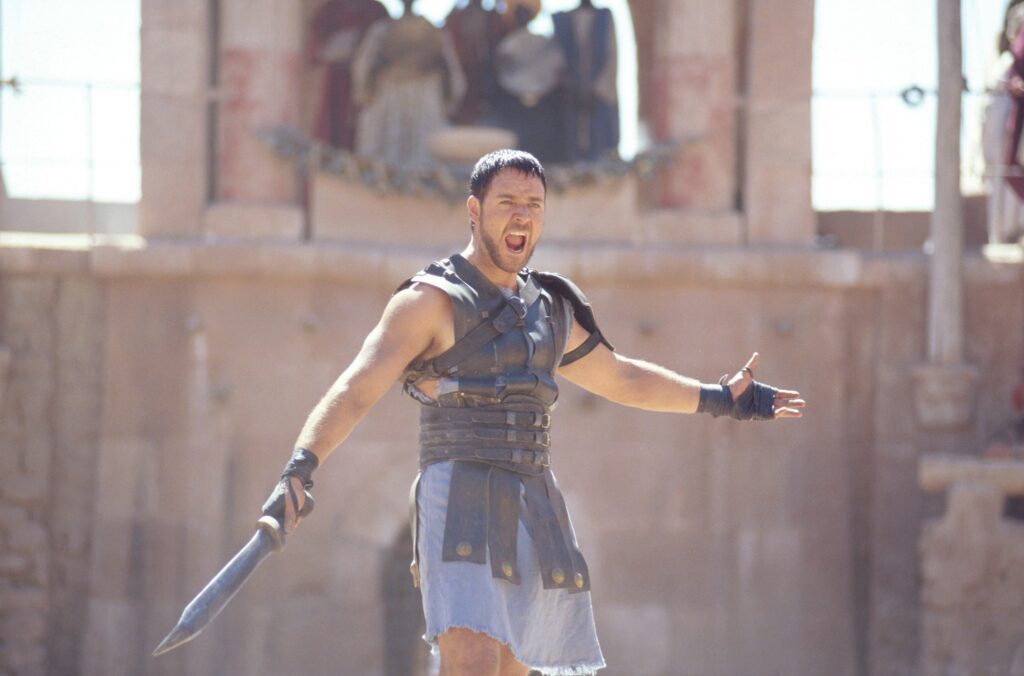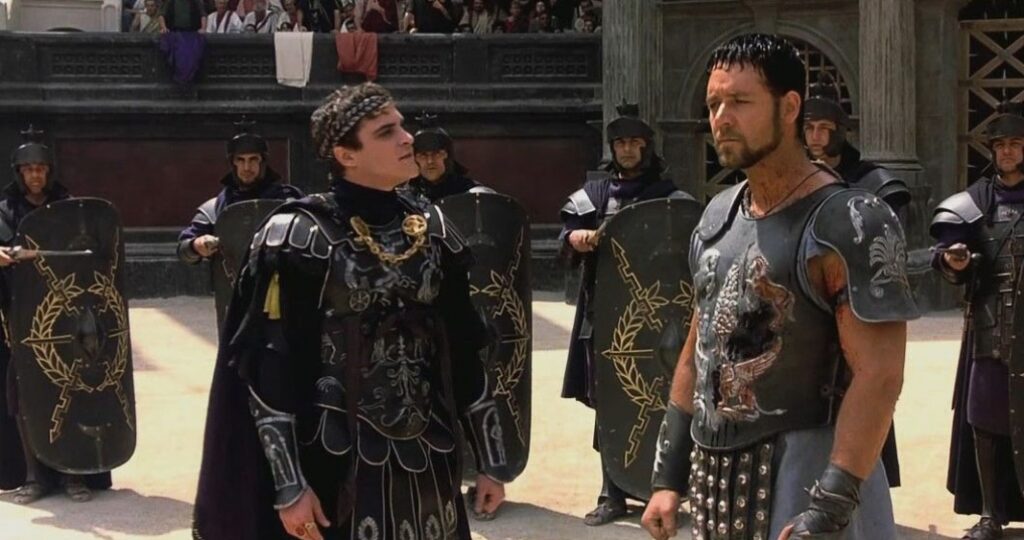
In the year 180 AD, General Maximus Decimus Meridius leads the Roman army to a decisive victory against Germanic tribes near Vindobona. Longing to return to his family and peaceful life, Maximus is summoned by Emperor Marcus Aurelius. The ailing ruler reveals a surprising decision: he wishes Maximus to succeed him as regent and restore the Roman Republic, bypassing his son, Commodus, who he deems unfit to rule. Enraged by this betrayal, Commodus murders his father in secret and claims the throne for himself.
When Commodus demands Maximus’s loyalty, the general refuses, enraging the new emperor. Commodus orders his execution and that of his family. Betrayed by his second-in-command, Quintus, Maximus narrowly escapes execution and rides desperately to his home near Turgalium. There, he discovers his wife and young son brutally murdered, their bodies displayed as a warning. Grief-stricken, Maximus buries them before collapsing from his injuries. Slave traders find him unconscious and sell him to a gladiator trainer named Proximo in the distant province of Mauretania Caesariensis.

Forced into the brutal world of gladiatorial combat, Maximus reluctantly fights for survival in local arenas. His natural combat skills make him a rising star, earning him the nickname “The Spaniard.” Among the gladiators, Maximus befriends Juba, a warrior from Carthage, and Hagen, a brawny German fighter. Meanwhile, Commodus solidifies his power in Rome and, seeking to gain favor with the masses, declares 150 days of grand gladiatorial games in the Colosseum.
Proximo, himself a former gladiator once freed by Emperor Marcus Aurelius, sees the games as an opportunity for fame and fortune. He takes his fighters to Rome, where Maximus is forced to face the horrors of his past. Disguised in a helmet to conceal his identity, Maximus makes his debut in the Colosseum as a Carthaginian warrior in a grand reenactment of the Battle of Zama. To everyone’s astonishment, he leads his team to victory, winning the admiration of the crowd.
When Commodus enters the arena to congratulate the victors, he is shocked when Maximus removes his helmet and reveals himself. Maximus declares his intent for vengeance, publicly denouncing Commodus as a tyrant. Though Commodus is infuriated, the crowd’s overwhelming support forces him to spare Maximus’s life. That night, Lucilla, Commodus’s sister and Maximus’s former lover, secretly visits him. She offers her help, but Maximus distrusts her, fearing she may betray him.

Determined to humiliate Maximus, Commodus arranges a duel between him and the fearsome gladiator Tigris of Gaul. Despite multiple tigers being unleashed into the arena, Maximus defeats Tigris but defies Commodus’s order to kill him, earning the crowd’s chants of “Maximus the Merciful.” Furious, Commodus grows more paranoid and orders his advisor Falco to tighten surveillance on senators and suspected traitors.
Maximus learns from Cicero, his loyal servant, that his former legions remain loyal and stationed nearby in Ostia. He secretly conspires with Lucilla and Senator Gracchus to escape, rally his forces, and overthrow Commodus. The plot thickens when Commodus grows suspicious of Lucilla after her son, Lucius, unwittingly mentions Maximus. Commodus threatens Lucilla and Lucius, tightening his grip on power.
As the conspirators prepare for Maximus’s escape, Commodus launches a brutal crackdown. The Praetorian Guard storms the gladiators’ barracks, killing Proximo and many others. Maximus is captured at the rendezvous point after witnessing Cicero’s execution. Commodus, seeking to humiliate Maximus publicly, arranges a final duel in the Colosseum, rigging it in his favor.

On the day of the duel, Commodus stabs Maximus before the fight to weaken him. Despite his injuries, Maximus fights valiantly, disarming Commodus in the arena. When Commodus pulls a hidden dagger, Maximus overpowers him and drives the blade into his throat, killing the emperor before collapsing to the ground. As he lays dying, Maximus commands that Rome be returned to the Senate, his fellow gladiators freed, and Senator Gracchus reinstated. In his final moments, Maximus envisions himself reuniting with his family in the afterlife.
As the crowd watches in stunned silence, Maximus is hailed as a hero. His body is carried out of the arena with honor by his loyal friends. That night, Juba returns to the Colosseum, burying small figurines of Maximus’s wife and son where the great warrior took his last breath, ensuring that his memory lives on as a man who fought not just for vengeance, but for the soul of Rome.















Leave a Reply